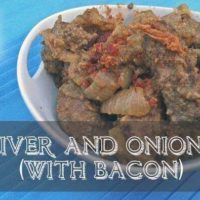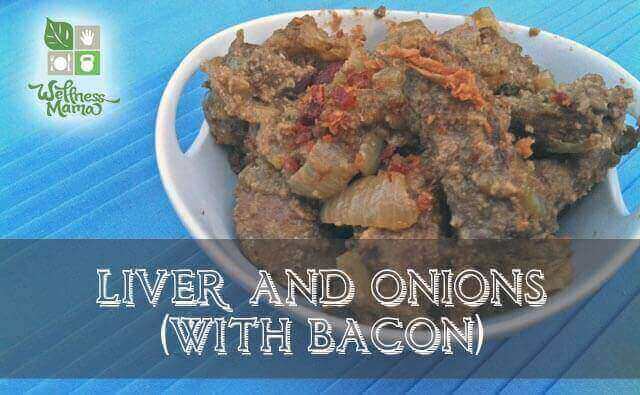It turns out that after all the childhood fear and drama about organ meats, they are actually good for you. If you aren’t already eating liver, you should be!
The objection I get most often (including from my mother-in-law) is that liver is the filter organ, so it contains toxins from the body and is bad for you. Liver is a filter of sorts, but that is hardly the whole story. As Mark’s Daily Apple elaborates:
To call the liver a simple filter is incorrect. If we want to maintain the metaphor, it’s more like a chemical processing plant. The liver receives shipments, determines what they contain, and reacts accordingly. It converts protein to glucose, converts glucose to glycogen, manufactures triglycerides, among many other tasks, but its best-known responsibility is to render toxins inert and shuttle them out to be expelled – usually in the urine via the kidney. It doesn’t just hang on to toxins, as if the liver is somehow separate from the body and immune to contamination. The liver is part of the body! If your liver contains large amounts of toxins, so do you!
Okay, so we’ve established that the liver is a processing plant by design, rather than a physical filter whose express purpose is to accumulate toxins, but what about animals raised in industrial, intensive operations? The liver from a pasture-raised cow with a perpetually cud-filled maw can undoubtedly handle its relatively light toxic load; the liver from a CAFO-cow feeding on grain and exposed to environmental pollutants is surely another matter entirely. Right? Sorta, although it’s more complicated than that.
From my research, as long as the liver is from a healthy source, it is a powerhouse of nutrients. (Note: We get liver from Grassfed Traditions and US Wellness Meats)
Why eat liver? WAPF sums it up well:
“Quite simply, it contains more nutrients, gram for gram, than any other food. In summary, liver provides:
- An excellent source of high-quality protein
- Nature’s most concentrated source of vitamin A
- All the B vitamins in abundance, particularly vitamin B12
- One of our best sources of folic acid
- A highly usable form of iron
- Trace elements such as copper, zinc and chromium; liver is our best source of copper
- An unidentified anti-fatigue factor
- CoQ10, a nutrient that is especially important for cardio-vascular function
- A good source of purines, nitrogen-containing compounds that serve as precursors for DNA and RNA”
It also blows any other “superfood” out of the water on nutrient comparison. Don’t believe me? Check out this post.
Convinced? If you are new to offal, I suggest an easy recipe like this one to help get over any *ick* factor:

Liver and Onions (with Bacon) Recipe
Servings
Ingredients
- 4 slices bacon
- 1 lb beef liver (grass fed)
- ⅓ cup coconut flour
- 1 tsp salt
- 1 tsp garlic powder
- ½ tsp black pepper
- 2 medium onions
- 2 TBSP butter (or coconut oil)
- 2 TBSP water
Instructions
- Preheat oven to 325°F.
- Brown the bacon in a skillet and reserve drippings.
- Wash the liver and slice into thin (¼ to ½ inch) slices.
- Rinse well and pat dry.
- In a medium size bowl, mix together the coconut flour, salt, garlic powder, and pepper.
- Grease the bottom of a 9×13 inch baking dish with the bacon drippings.
- Dredge the liver slices in the coconut flour mixture and place in the baking dish.
- Thinly slice the onions into rings and layer on top of the liver slices.
- Cut butter in to small pats and place over sliced onions.
- Add the water to the pan to keep all moisture from cooking off.
- Place the pan in the oven and cook at least 30-40 minutes or until well cooked and onions are soft. It may take up to an hour depending on the thickness of the liver slices.
- While the liver is cooking, crumble or cut the bacon into little pieces.
- Remove the liver from the oven, sprinkle with bacon pieces, and enjoy!
Nutrition
Notes
Do you eat liver? Love it? Hate it? Share below!


Leave a Reply